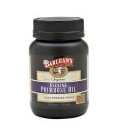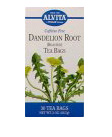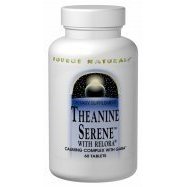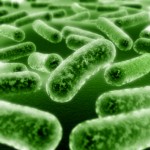 What is PMS?
What is PMS?
Premenstrual Syndrome commonly known as PMS affects nearly seventy fiver percent of menstruating women. This disorder usually occurs a week before a woman gets her period. For some women PMS is disabling often times interfering with their ability to go to school, work, or carry on other daily activities. PMS is caused by a woman’s fluctuating hormones during her cycle which causes a host of symptoms.
Who Gets PMS?
Any woman who is menstruating could at some point experience PMS. But, the severity in symptoms varies from one woman to another. Some woman don’t notice any abnormal symptoms prior to getting her period. A woman’s genetics, and her lifestyle play an important role in getting PMS.
What are the Symptoms of PMS?
Because PMS is caused by fluctuating hormones, symptoms are broken up into two different categories, psychological, and physiological. The most common psychological symptoms are; tension, irritability, mood swings, crying spells, insomnia, mental confusion, fatigue, aggression, loss of concentration, changes in libido, forgetfulness, and depression. The most common physiological symptoms are; weakness, bloating, headache, weight gain (usually fluid retention,) increased appetite, sugar cravings, pelvic pain and discomfort, changes in bowel habits, breast tenderness, aches, and pains, clumsiness, and physical fatigue.
What are the Root Causes of PMS?
Hormonal imbalances are the main root cause for PMS. Poor diet, nutritional deficiencies, and food allergies. Seasonal affect disorder, depression, stress, thyroid problems, poor liver function, and Hypoglycemia are other known root causes for PMS.
Natural Remedies.
Eat a diet high in organic fruits, and vegetables. Limit meats, dairy, fat, and sugar, these foods can cause hormonal fluctuations which will just add to the already fluctuating hormones. Also, make sure you cut down on your sodium a week prior to and throughout your period. Salt will increase water retention. Exercise at least fifteen minutes a day a week prior to your period. Yoga is especially helpful, and continuing to exercise through your period will help to ease cramps, and improve your mood. Drink at least one liter of purified water a day. If you aren’t drinking enough water your body will retain water.
|
|
Evening Primrose Oil– Take 3,000 mg daily, or as directed on the label. Evening Primrose oil helps to balance hormones. It will also improve your skin, hair, and nails. |
|
|
Vitamin B6– Take 50 mg daily. Vitamin B helps with all PMS symptoms. |
|
|
Cramp Bark– Take as directed on the label. Cramp Bark helps ease the pain of uterine contractions. |
|
|
Magnesium– Take 250 mg twice a day, or as directed on the label. Magnesium is a natural muscle relaxer, and a deficiency is often linked to cramping. Some women find magnesium to be better at easing cramping than ibuprofen. |
|
|
Dandelion Tea– Drink a few cups daily. Dandelion tea will help with water retention. |
|
|
Theanine Serene– Take as directed on the label, as soon as your psychological symptoms start. Every woman is different, so you know when you are staring to feel “goofy” so that is when you would start taking them. This supplement contain Magnesium which is a natural muscle relaxer. Gaba, which is an amino acid that will help with stress. L-Theanine which is another amino acid that is found in green tea leaves. L-Theanine helps calm the nerves, and promotes centered calmness. Relora, and Passion Flower are also found in Theanine Serene, these will help to reduce anxiety, and stress. Most women find that this supplement starts to take affect within thirty minutes. This is the best solution that I have come across for the psychological symptoms of PMS. |
*Please check with your doctor before taking any supplements, and also read the warning labels on each product, especially if you are pregnant or breast-feeding. Also read the labels carefully when giving your child any natural supplement, to ensure that it is safe to give a child.











